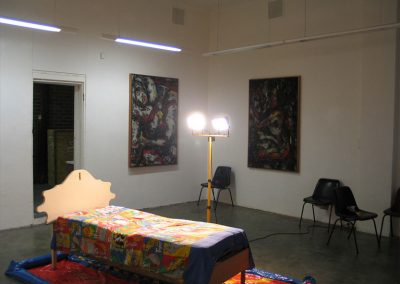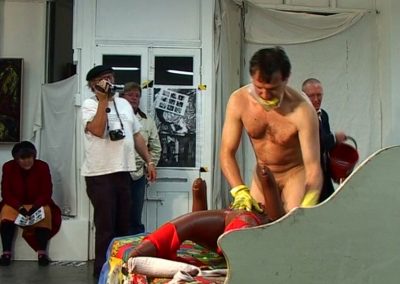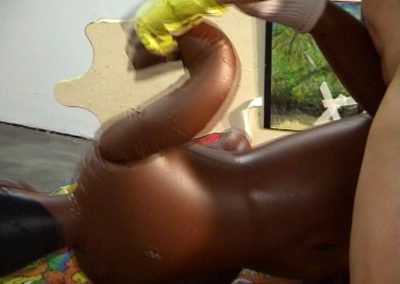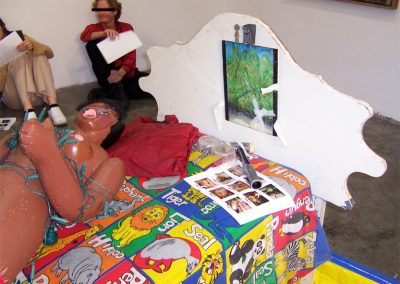The cider press of eroticism
A short comment about the cider press of eroticism.
If you have accomplished the aesthetic then there is nothing left, just hold on to your silence and watch. The cider press of eroticism was an attempt, a Physical Illustration, to realise creative desires like moments that go beyond aesthetic insipidness.
In the cider press of eroticism I have tempted Nihilism and exempt, once and for all, the beauty park exhibition formula. From the start, I disqualified the audiences expectations, I brought them right down to confront the unashamedly and the outrages.
The art situation has at that point entered a reality level, one that was no more play but rather an affront to the artificial and moral obligation. One had to deal with ‘now’ and with art, or leave.
The artist at this rare occasion did not comply to please the audience, his desire was to establish a relationship between his Reverse Paintings – that where also displayed on the wall – and the subject matter in the work.
You might ask this question: How can artists truly know if an image, portrait – perhaps in photograph, digital print, painting or any other medium – does successfully resonate sensations of the subject displayed?
I answer: The artist must experience and re-enact what is in the painting. If the artist does not physically try out the sequence in the painting itself, he/she would not understand the carnal relationship between form and material?
The Physical Illustration went trough seven stages, matching the seven compositions of the paintings displayed. The use of water made beings appear, which are normally invisible, such as the fluid nature of ‘paint’.
This was the moment where one can find identity, ones own understanding of the personal creative desire. What has been painted has been re staged in one evening at the Kurb Gallery.
The audience and I agreed, life is short and one must have curage and try out, thus to facilitate knowledge:
‘Let me add to this that in every idea emanating from
genius, or even in every serious human idea—born in the
human brain—there always remains something—some
sediment—which cannot be expressed to others, though
one wrote volumes and lectured upon it for five-and thirty
years. There is always a something, a remnant,
which will never come out from your brain, but will
remain there with you, and you alone, for ever and ever,
and you will die, perhaps, without having imparted what
may be the very essence of your idea to a single living soul.
From ‘The Idiot’ by Fyodor Dostoevsky








